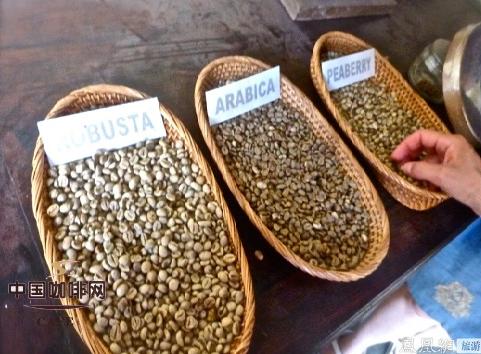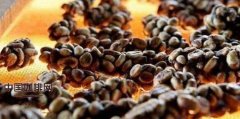Why is Indonesian cat poop coffee so expensive?

The price is expensive: the Kopi Luwak is the least produced coffee in the world. A bag of 50 grams of coffee beans is worth 1500 yuan. It can only make 4 cups of coffee. In other words, the price of a cup is about 400 yuan. The annual global output does not exceed 400 kg. Today, villagers in these areas not only collect wild Rwaka feces, but also begin to raise Rwaka in captivity. Large pots of picked coffee cherries were placed in front of Rwaka, and the hungry Rwaka had no choice but to eat all the coffee cherries. The taste of Rwaka coffee produced in this way is naturally greatly reduced. "scarcity is precious", which has led to the high price of Kopi Luwak, a rare treasure. I'm afraid you'll have to prepare £50 for a cup of coffee, and you may not be able to find it everywhere.
In Indonesian, "Kopi" means coffee, and "Luwak" is the name commonly known by Indonesians as "civet". It is said that the coffee produces no more than 500 pounds a year, and the price per pound ranges from $300 to $800, depending on the year, because there is not a fixed production every year.
In the international market, Luwak coffee has always been a veritable luxury, and one of the main reasons for the Kopi Luwak processing is that it is not made by people but by wild animals. Traditionally, the coffee fruit is washed or sun-treated, removing the skin, pulp and sheep skin, and finally taking out the coffee beans, but Luwak coffee is made by natural fermentation in wild animals. What's more, these wild animals are found only on small islands like Indonesia, and their time and place are mysterious, and their number is decreasing day by day. Although Indonesia has claimed that the number of "civets" has rebounded steadily through protection and artificial feeding, the temptation of human taste buds, which depends on its digestive system, cannot be compared with products of the industrial era.
"civets" are omnivores. They are withdrawn by nature and like to walk at night. They live in tropical rain forests, subtropical evergreen broad-leaved forests, mountain thickets or hills, mountains and grasses below 2000 meters above sea level. Its food includes small beasts, birds, amphibians and reptiles, crustaceans, fruits and seeds of insects and plants. The civet likes to choose the most mature, sweet, juicy coffee fruit in the coffee tree as food, while the coffee fruit passes through its digestive system and is digested only by the pulp on the outside of the fruit. The hard coffee beans are then excreted intact by the civets' digestive system. This is the "natural fermentation method" that was once scoffed by Americans. It is said that when Americans heard about this way of making coffee, it was regarded as a fantasy, and it was not until it was reported by National Geographic that they became interested in it.
Luxury: in the international market, Luwak coffee has always been a veritable luxury, one of the main reasons is that it is not people but wild animals that make this coffee. Traditionally, the coffee fruit is washed or sun-treated, removing the skin, pulp and sheep skin, and finally taking out the coffee beans, but Luwak coffee is made by natural fermentation in wild animals. What's more, these wild animals are found only on small islands such as Indonesia, and their time and place are mysterious. Coupled with the destruction of their habitat, they have also been hunted and killed in large numbers, and the number is decreasing day by day. Every time farmers collect coffee beans, they have to spend a lot of time and effort to do a carpet search in the forest, and the quantity found is small. Although Indonesia has claimed that the number of "civets" has rebounded steadily through protection and artificial feeding, the temptation of human taste buds, which depends on its digestive system, cannot be compared with products of the industrial era.
Important Notice :
前街咖啡 FrontStreet Coffee has moved to new addredd:
FrontStreet Coffee Address: 315,Donghua East Road,GuangZhou
Tel:020 38364473
- Prev

The origin and market of Jamaica Blue Mountain Coffee
A real Blue Mountain Coffee is in the triple digits, but as one advertisement said, not all milk can be called the same, and not all Blue Mountain beans can produce the flavor that Blue Mountain Coffee should have. Because the real flavor of Blue Mountain Coffee is the combination of beans and processing technology, rather than simply imported Blue Mountain beans. The market is the same as Lanshan raw beans. The difference of cooked beans is 10 times. China accounts for 15% of the total consumption.
- Next

Main characteristics of Coffee Kopi Luwak in Musk Coffee
Main features: coffee beans generally go through the process of shell fermentation, coffee beans in the civets' intestines, special bacteria provide a unique Kopi Luwak fermentation environment, the flavor becomes unique, particularly thick and mellow. The coffee beans fermented by civets' intestines and stomach are very thick and mellow, so they collect civets' feces, sift out the coffee beans and brew them to drink.
Related
- Detailed explanation of Jadeite planting Land in Panamanian Jadeite Manor introduction to the grading system of Jadeite competitive bidding, Red bid, Green bid and Rose Summer
- Story of Coffee planting in Brenka region of Costa Rica Stonehenge Manor anaerobic heavy honey treatment of flavor mouth
- What's on the barrel of Blue Mountain Coffee beans?
- Can American coffee also pull flowers? How to use hot American style to pull out a good-looking pattern?
- Can you make a cold extract with coffee beans? What is the right proportion for cold-extracted coffee formula?
- Indonesian PWN Gold Mandrine Coffee Origin Features Flavor How to Chong? Mandolin coffee is American.
- A brief introduction to the flavor characteristics of Brazilian yellow bourbon coffee beans
- What is the effect of different water quality on the flavor of cold-extracted coffee? What kind of water is best for brewing coffee?
- Why do you think of Rose Summer whenever you mention Panamanian coffee?
- Introduction to the characteristics of authentic blue mountain coffee bean producing areas? What is the CIB Coffee Authority in Jamaica?

